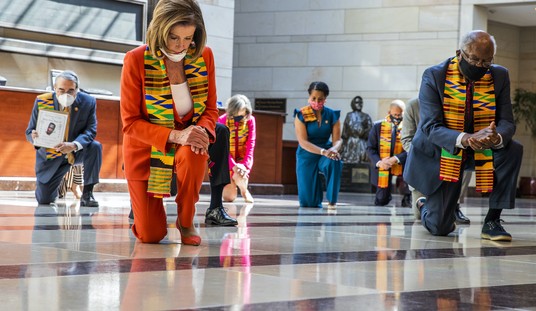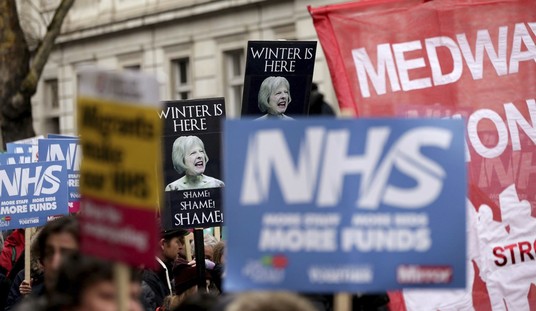For years, conservatives complained with solid justification that there was very little daylight between Republicans and Democrats, especially in Washington. In the era of so-called “compassionate conservatism” — better described as “big-government centrism” — Republicans and Democrats both pushed for massive spending increases and expansion of federal power, with favored beneficiaries being the only difference between them. That disillusionment played into the 2006 and 2008 election cycles and got amplified over the last 18 months with the Tea Party movement demanding a return to fiscal sanity from someone.
Constitutional law scholar and Republican candidate for Congress Teresa Collett says we finally have the public debate America needed on the nature of government and the long-term impact of fiscal policy:
By comparison, the Pledge to America, part of the Republican response to the sustained popular discontent, reflects a very different attitude toward government and the electorate. At least some in the GOP are saying: “We’ve been listening to you; we’ve learned some very important lessons over the past few years, and we get it. You have reminded us of our conservative principles, and if you will have us back, we are going to focus on bolstering the economy, tackling our national debt, repealing Obamacare and replacing it with patient-centered reforms, reigning in government overreach, and restoring government accountability and transparency.” The pledge is a promising start to restoring limited government, fiscal sanity, individual liberty and national greatness.
It was once observed that the greatest guarantor of liberty would be the “vigilant and manly spirit which actuates the people of America” in defense of their own liberty. The events of the past 18 months have reawakened and reinvigorated that spirit among average citizens now demanding real change and accountability from both parties. These citizens want smaller, less intrusive constitutional government; they want health care reform that will actually bring down the costs of and increase access to quality health care; they want fiscal policies that will bolster rather than destroy the economy; they want representatives with the moral courage to implement the measures necessary to secure our national borders and reduce the national debt and who will take seriously their constituents’ claims. Both parties have been put on notice.
The Republican majority that likely will control the House of Representatives in January will be markedly different from the majority ousted from power in 2006. Across the country, incumbent Democrats who have supported the president’s agenda are going to be defeated by conservative challengers; Tea Party candidates have defeated many establishment Republicans. The members poised to take control of the House (and I hope to count myself among them) are actuated by the vigilant and manly spirit that nourishes freedom.
Teresa, a friend of mine, faces a tough district for this debate, but she has the fortune to face off against the reductio ad absurdum of government expansion, Betty McCollum, who may be the only Democratic incumbent defending Nancy Pelosi. Minnesota’s 4th CD encompasses deep-blue St. Paul but also a significant part of the first-ring suburbs. Hopefully, this message will resonate enough to return the 4th CD to Minnesota rather than San Francisco, as McCollum votes in complete lockstep with Pelosi.
Some readers will rightly point out that there remain more than a handful of Republicans in Congress and the Senate who support big-government solutions still, although not to the extent of the agenda of Barack Obama and Pelosi. That’s certainly true, but the Republican Party seems to have begun a sharp change in direction overall, led by stalwarts like Tom Coburn, Jim DeMint, Paul Ryan, and others. In this election, we do finally have a debate and a choice, and seeing the amplitude of the wave building in the electorate, it’s a debate that the American people have wanted all along.








Join the conversation as a VIP Member